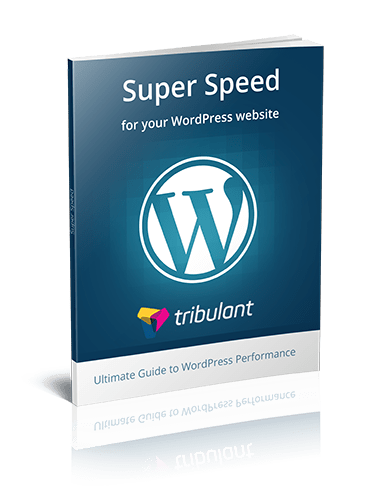
Tips for Writing Your Best SEO Content

It is hard to find a company which doesn’t incorporate SEO into its marketing technique. More than that, producing “right” pieces of writing is an inherent aspect of all sites. This is mainly because SEO writing boosts traffic by driving visitors.
There is no secret that almost ninety percent of users browse the top search results only. A Tampa SEO expert tells us that there’s a belief ingrained in most web users that the best and most reliable content is only found in the results that appear on the first page of search engines. Inasmuch as there’s some truth in this claim, there are many genuine content creators who’ve not got the chance to share their ideas effectively simply because their content isn’t optimized. If you’re not well-versed in the world of search engine optimization, then experts like Montreal SEO agency will definitely come in handy if you’re from the locality.
If you are involved in developing content for a company’s site, then you should know that there are very few chances that your client offers something unique and thus is very likely to sell goods or services that many other companies are promoting to a niche audience on the Net. As such, your client and many other companies are always competing for the first few spots in the search results. Let us say, a paper writing service Pro-Papers wouldn’t be as successful as it is today if its team of professionals failed to organize their content properly so that their site ranked higher than their rivals’ ones. Organization here is not only about the flow of content in the body but also the structure of words in the main title and the subheadings.
Hence, to enable your client to stay afloat, it is vital to know exactly how texts should be presented on a page. By arranging them properly, you will help a search engine find your material easier, as well as increase the site’s ranking. Below, there are a few hints to follow to produce better SEO content:
A title without a keyword phrase is a bad title
As mentioned earlier, the organization starts from your titles. With no doubt, funny and engaging titles are very interesting to write; however, a keyword phrase written in your title will do the trick. Note that you should be interested in generating texts for Google and Google’s algorithms. One thing that some content creators fail to appreciate is that Google’s algorithm always tries to find the most relevant content based on the user’s search. Titles are among the main features checked in this sorting process, and yours can only be considered if it contains relevant words.
With more than five million searches done daily, Google is believed to be the most used on the Net. Hence, it is worth mentioning that it attaches great importance to titles; therefore, including keywords in titles is a very smart decision. This is exactly how you can start producing the pieces that will rank high. Your title will attract your audience’s attention if you use numbers. Of course, it can be hard to read the minds of Google search users, but it’s your job as an SEO content creator to do just that. A good example is when you’re trying to find the right title for a list-form content. Rather than writing ‘some’ or ‘a few,’ it would be prudent to use an exact number like ‘5 tips’ or ‘ten ways.’ This will increase the relevance of your content, at least, according to Google’s algorithms.
Start with a keyword
Start your piece with a sentence containing a keyword no matter whether it is a question or statement. Moreover, bolding the whole keyword phrase is a very important step to take. When a search engine scans your text, it takes bold phrases as something that has a higher priority than the rest text. Take note that italicized phrases work the same way.
Produce evergreen articles
When we speak about this sort of content, we mean that it stays up-to-date long after it is published on the Net. This is true especially when it comes to social media. If your pieces are of current interest, the number of shares increases, and if this happens, then the page ranks higher.
Don’t use too many keywords
To draft effective pieces, don’t use keywords oftener than once every hundred and fifty words. Using too many of them in your text takes from the value of the latter. Simply put, your readers will not be interested in reading a piece that is overladen with this sort of words. Moreover, a search engine will likely register your text as spam and thus it will appear low on a SERP.
Call it a tomato, not a round red vegetable
When it comes to SEO writing, there is no place for long descriptions and lofty phrases. Your main goal is to produce neat pieces that make good reading and that promote a particular service or product. Therefore, using complex phrases can make your texts hard to digest and thus many prospective clients will want to give up on reading your piece hardly they start doing that. It pays to use short action verbs and a few industry buzzwords that will juice your text up.
Use geo-targeted words
The truth is that Internet markets are getting overcrowded; therefore, all businesses must differentiate themselves from the crowd. When you write for the company that runs its business inside a particular territory, be sure that your texts contain geo-specific keywords. Customers are very likely to be specific in their search and thus often strive to look for the goods offered nearby.
Don’t forget about link building
Just like with bold and italicized words, Google gives extra weight to keywords used in clickable phrases. For this very reason, we would highly recommend you to use hyperlinks in your texts; however, don’t overuse them. Including a linking phrase in the first or last section will make your client’s target customers browse a particular page that will greatly add to your SEO strategy.
Break up your text properly
When crafting, keep in mind that even the most curious reader will not like reading a thousand-word post that is a wall of text. Break up your texts into paragraphs and don’t forget about subtitles highlighting your main point. If you do everything right, then your pieces will be easy to digest and search machines will scan the pages better. As a general principle, you have to include a subheading every three hundred words, if that. Don’t write subheadings that are more than five or seven words long.

I am the owner at Tribulant Software and I have a great passion for WordPress, development, blogging and the Internet in general. Building useful plugins to improve WordPress’ functionality is my goal.
WordPress Plugins
Start selling products, sending newsletters, publishing ads, and more through your own WordPress website using our premium WordPress plugins.



No comments yet